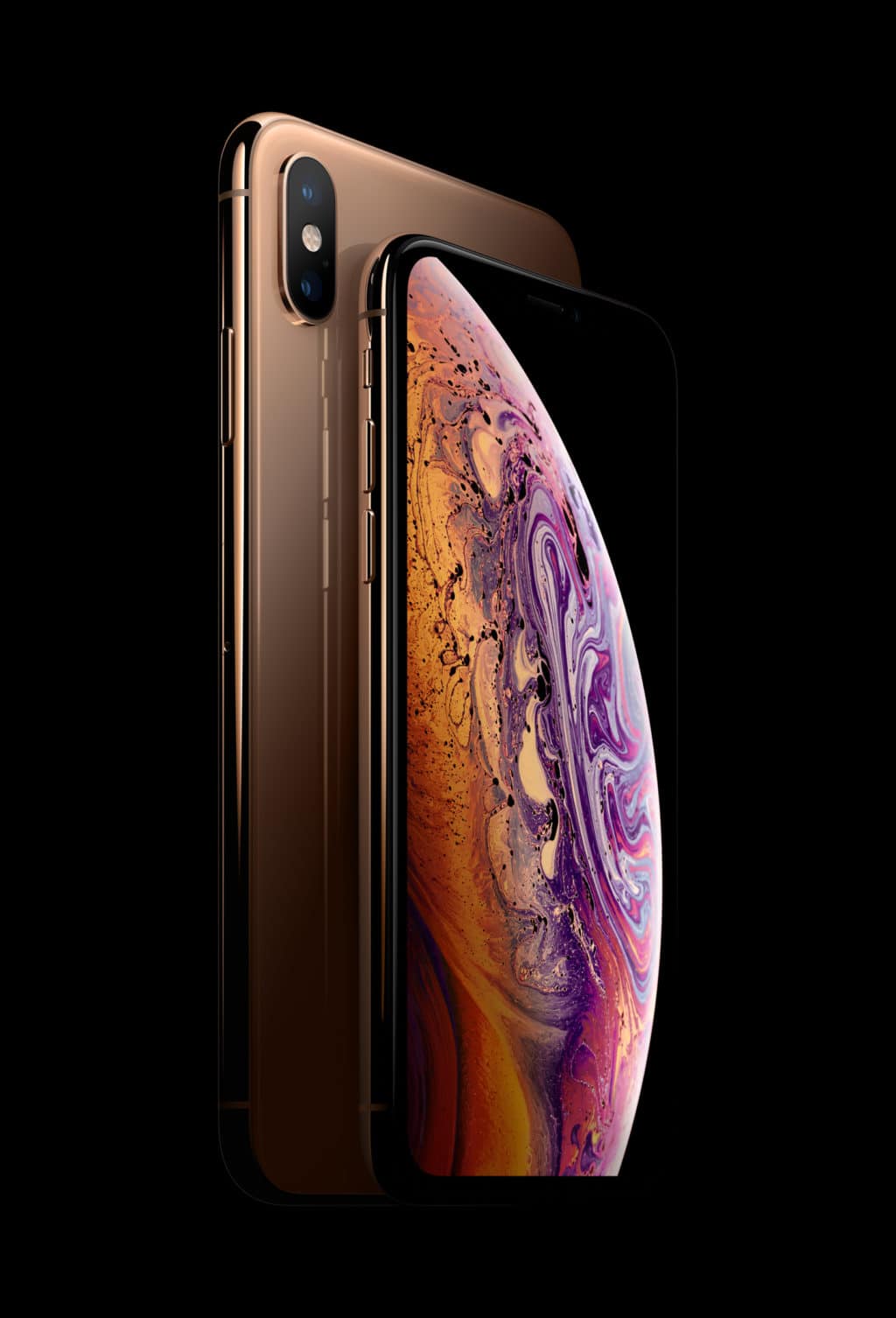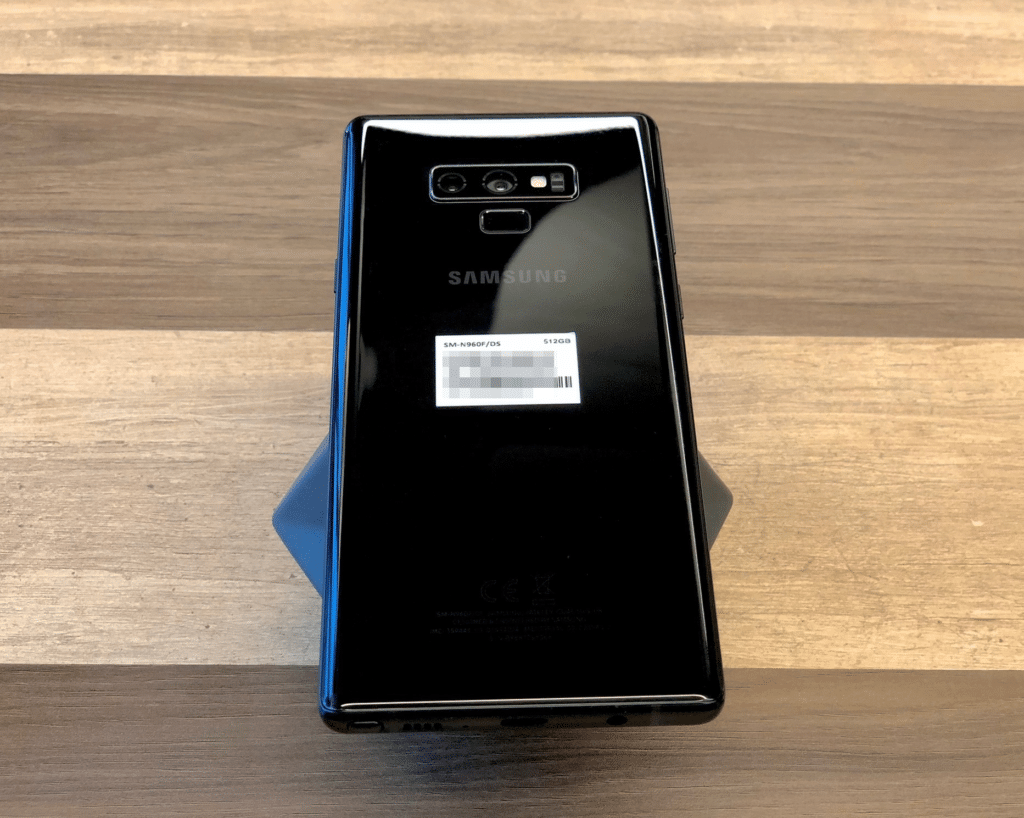
With the iPhone XS Max, Apple now once again has a proper bezel-less contender to Samsung’s Galaxy Note 9. The iPhone X with its 5.8-inch display was simply not big enough for people who want a massive screen on their smartphone.
The iPhone XS Max fills that voids and takes on Samsung’s latest Note, the Galaxy Note 9. Samsung has had a pretty average 2018, with its flagship Galaxy S9 failing to set the sales chart on fire. The initial response to the company’s Galaxy Note 9 has been positive though thanks to its improved battery life, big and beautiful display, and excellent cameras.
What’s the difference between iPhone XS Max and Galaxy Note 9?
So, how does the iPhone XS Max compare to the Galaxy Note 9? Let’s find out in our comparison.

iPhone XS Max vs Samsung Galaxy Note 9 Comparison
Display
- iPhone XS Max – 6.5-inch True Tone OLED, 2688 x 1242 pixels (458 ppi), 3D Touch, HDR10, Dolby Vision, 3D Touch
- Galaxy Note 9 – 6.4-inch curved OLED, 1440 x 2960 pixels (516 ppi), HDR10, Dolby Vision
The Galaxy Note 9 is massive by all means. It comes with a massive 6.4-inch QHD+ Super AMOLED display that is curved on its edges and has a pixel density of 516 ppi. It is not a bezel-less display though, with there being a small chin at the top and bottom. This gives the Galaxy Note 9 a body-to-screen ratio of 83.51 percent. In comparison, the iPhone XS Max comes with a 6.5-inch notched display with a 500 ppi. While the pixel density is lower than that of Note 9, the iPhone XS Max manages to fit a bigger display in its compact chassis.
The OLED panels on both devices are among the best in the market. The Galaxy Note 9’s OLED panel has already been crowned by Display Mate as having the best smartphone display on the market right now, though given how the iPhone X’s display performed last year, the iPhone XS Max will likely take that crown or come very close to snatching it.
Design
- iPhone XS Max – 157.5 x 77.4 x 7.7 mm and 208g, IP68 certified
- Galaxy Note 9 – 161.9 x 76.4 x 8.8mm and 201g, IP68 certified
The Galaxy Note 9 is taller and thicker than the iPhone Xs Max, though it is not as wide as Apple’s offering. This makes the Note 9 the bulkier of the two handsets, with the notch-less display also making the device more difficult to use with one-hand. While both phones feature a glass design, the iPhone Xs Max features a stainless steel chassis which has a far more premium feel to it when compared to the aluminum chassis of the Galaxy Note 9. Both phones are also IP68 dust and water-resistant, though the iPhone Xs IP certification is slightly better.

Processor
- iPhone XS Max – A12 Bionic, 7nm chip, 6-core CPU which is 15 percent faster, 50 percent faster 4-core GPU, 8-core Neural engine
- Galaxy Note 9 – Octa-core Exynos 9810/Snapdragon 845 chip running at 2.7/2.8GHz, 2nd gen 10nm chip,
The Galaxy Note 9 comes with Qualcomm’s Snapdragon 845/Exynos 9810 chipset which are the absolute fastest chips you can find in the Android ecosystem. However, none of them hold a candle against Apple’s A12 Bionic which is an absolute monster in terms of performance. The A12 Bionic chip inside the iPhone XS Max is the at the absolute bleeding edge of the technology with its 8-core Neural engine, 7nm fabrication process, and 6-core CPU. In this department, the Galaxy Note 9 is simply nowhere close to what Apple offers with the iPhone XS Max.
Camera

- iPhone XS Max – Dual 12MP camera setup with f/1.8 and f/2.4 aperture, new sensor with 1.4um pixel pitch, OIS for both sensors, Smart HDR, Focus Pixels, Portrait mode with advanced bokeh and Depth control
- Galaxy Note 9 – Dual 12MP camera with variable f/1.5 and f/2.4 aperture, 1.4um pitch pixel, dual OIS, Auto HDR, Super Speed Dual Pixel, Live Focus with adjustable bokeh effect
The rear camera setup of both handsets in similar in many ways. They both feature a primary 12MP wide-angle lens paired with a secondary 12MP telephoto lens. The Note 9’s primary sensor features a wider f/1.5 aperture and variable aperture, the iPhone XS Max has Smart HDR which should allow it to capture more details and offer better dynamic range. Both phones offer depth control for portrait mode, though the iPhone Xs Max offers more features which includes providing third-party apps with access to this depth information.
Front Camera
- iPhone XS Max – 7MP TrueDepth Camera, f/2.2 aperture, Retina Flash, Portrait mode with advanced bokeh and Depth control, Smart HDR
- Galaxy Note 9 – 8MP, f1/7, Autofocus, Screen Flash, Portrait mode
The Galaxy Note 9 has a higher resolution selfie camera with autofocus and a wider f/1.7 aperture. However, Samsung ends up destroying most of the selfies the Note 9 captures by applying gracious amounts of smoothening and sharpening. The iPhone XS, in comparison, captures more natural looking selfies.
Storage
- iPhone XS Max – 64GB, 256GB, 512GB
- Galaxy Note 9 – 128GB, 512GB, microSD card slot
If there’s one department where the Galaxy Note 9 wins over the iPhone XS Max, its storage. While the base variant of the iPhone XS ships with 64GB storage, Samsung offers the base Galaxy Note 9 with 128GB of storage. And then there’s also the microSD card slot on the device which accepts cards of up to 512GB. So, if you want the maximum storage, buy the 512GB storage variant of the Note 9 and insert another 512GB SD card for a total storage space of 1TB.
The Galaxy Note 9 also comes with 6GB RAM which is more than what the iPhone XS comes with (4GB). The 512GB variant comes with 2x the RAM of iPhone Xs Max at 8GB.
Connectivity
- iPhone XS Max – Dual SIM/eSIM, Gigabit LTE, Wi-Fi ac with MIMO, Bluetooth 5.0, VoLTE, NFC with reader mode
- Galaxy Note 9 – Dual SIM, 1.2Gbps LTE, Wi-Fi ac with MIMO, Bluetooth 5.0, VoLTE, NFC, 3.5mm headphone jack
This is a key area where the Galaxy Note 9 reigns supreme over the iPhone Xs Max. The Galaxy Note 9 not only comes with two traditional SIM card slots, it also supports faster 1.2Gbps LTE download speeds. The iPhone XS offers Gigabit LTE support at best. And yes, the Galaxy Note 9 also comes with a 3.5mm headphone jack.
Biometric Authentication
- iPhone XS Max – Face ID
- Galaxy Note 9 – Iris scanner, Fingerprint scanner, Face unlock
Unlike the iPhone XS Max which only comes with one form of biometric authentication, the Galaxy Note 9 comes with three different types of authentication including a fingerprint scanner.
Battery Life and Charging
- iPhone XS Max – 90 minutes better than iPhone X, 7.5W wireless charging, 18W wired charging, 65 hours audio playback, 15 hours video playback, 13 hours internet use
- Galaxy Note 9 – 4,000mAh battery, 10W Fast wireless charging, 15W wired charging, 59 hours audio playback, 20 hours video playback, 17 hours internet use
The iPhone Xs Max should offer better battery life than the Galaxy Note 9 since it comes with a more power efficient A12 Bionic chip. While the Galaxy Note 9 might offer inferior battery life, it does have one key advantage. Despite coming with a slower wired charging (15W), Samsung actually bundles a 15W adapter with the Note 9. Apple, on the other hand, continues to bundle a measly 5W charger with the iPhone XS Max despite it supporting 18W fast charging.
Pricing
- iPhone XS Max – Starts from $1,099
- Galaxy Note 9 – Starts from $999
While the base variant of the Galaxy Note 9 starts from $999, one can easily get it for a couple of hundred bucks lower price. If not, most retailers usually sweeten the deal by offering a free Galaxy watch or wireless charger. The iPhone XS Max, on the other hand, starts from $1,099 and goes all the way up to $1,449. The 8GB Note 9 variant carries a retail price of $1,250 which ultimately makes it a far more attractive proposition in terms of value for money when compared to the iPhone XS Max.
The Galaxy Note 9 obviously comes with an S-Pen which is unique to the device. It is something that will only appeal to a certain section of users though.
What do you think about the Galaxy Note 9 and iPhone XS Max? Between the two, which one would you prefer? Drop a comment and let us know!